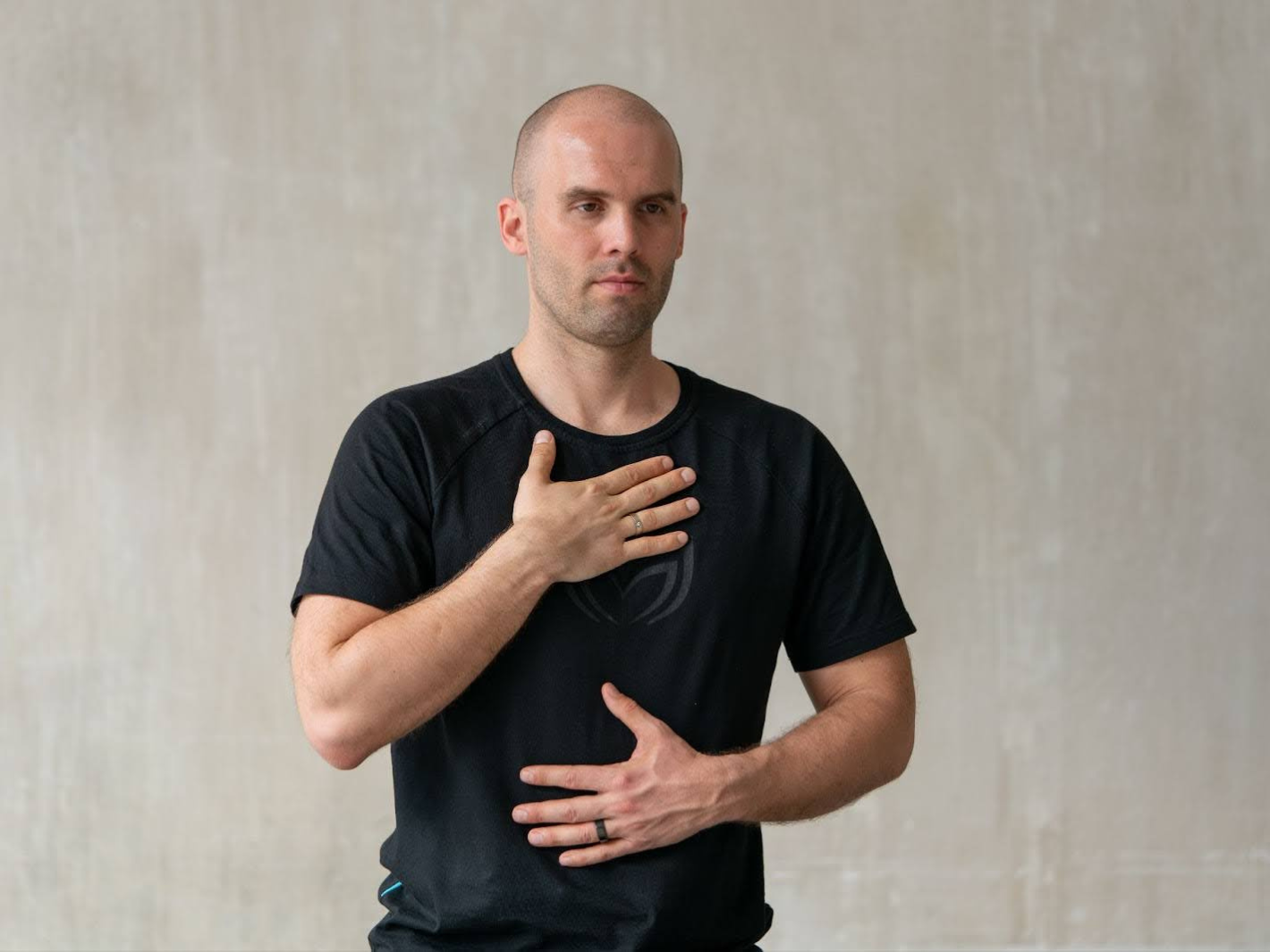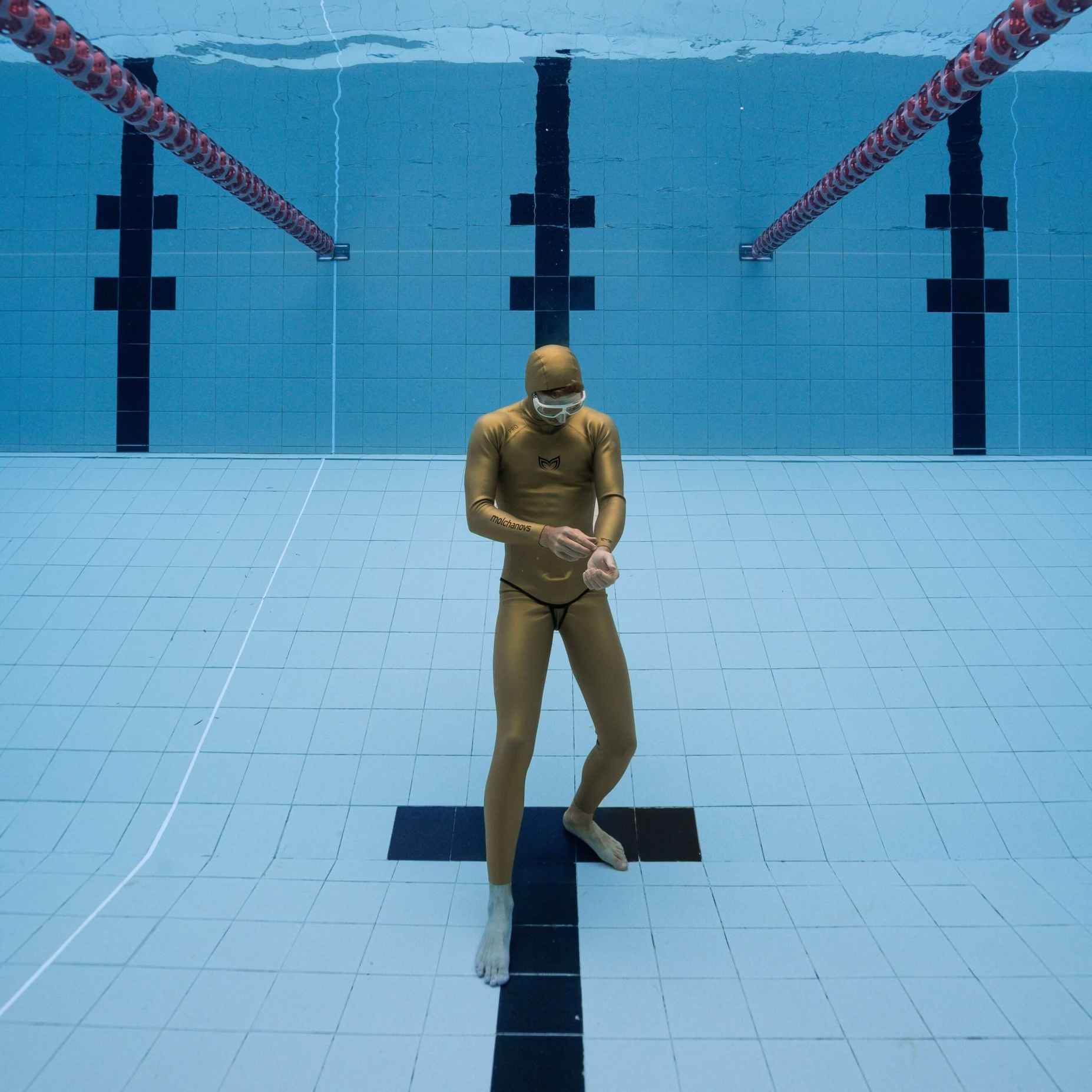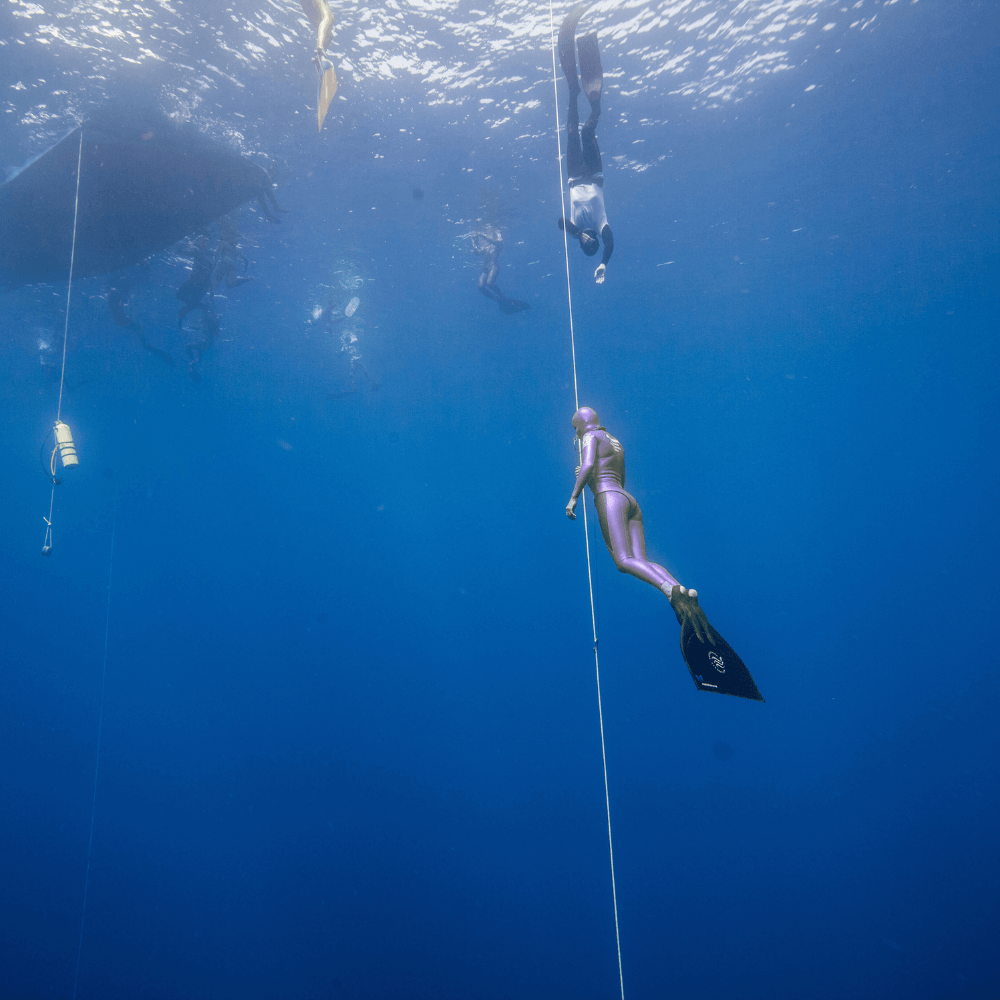Benefits of Breathwork for Freediving (and Beyond)

Greater mental and physical performance begins with the breath
By Jeremy Storton
Editor Deena Lynch
Most of us have been running or swimming since we were small. But if we had the opportunity to train with an Olympic coach, they would likely first teach us how to run or swim properly. The same is true with breathing. We have been breathing all our lives, but only a few breathe properly and earn the benefits of doing so.
The average adult male has a lung capacity of approximately 6 liters, while the average female has about 4 liters. Meanwhile, freedivers and other aerobic athletes can build lung capacities upwards of 8 or 9 liters. However, this is about more than just having a greater air supply; it also has an effect on our neurology and physiology. These effects yield benefits that are equally effective both above and below the surface.
 Breathwork promotes positive neurological and physiological changes. Photo © @oliferalina
Breathwork promotes positive neurological and physiological changes. Photo © @oliferalina
Freedivers learn proper breathing techniques in their first course, which teaches them how to maximize performance from their lungs. These same techniques that allow freedivers to lower their heart rate and hold their breath for minutes at a time can help a mountain climber ascend with less fatigue, an overworked teacher remain calm in the classroom, or a CEO give a commanding speech to an audience of thousands. The best part is, you don’t have to be an elite freediver to enjoy these benefits; you can improve your mental and physical performance by properly training your breathing in just minutes every day.
Here are ten reasons why you should start breathwork today and continue every day after:

 Breathwork is the key to better freediving. Photo © @oliferalina
Breathwork is the key to better freediving. Photo © @oliferalina
How Breathwork Will Improve Your Freediving
Freedivers require all of these benefits: oxygen efficiency, CO₂ tolerance, relaxation, calm, and deconcentrated focus. Fortunately, the way to obtain them is simple: consistent training. The keyword here is “consistent.” Occasional breathwork sessions are still valuable, but the neurological and physiological benefits are earned, just like our physical fitness. If you can commit to two to four training sessions per week for approximately 15 minutes each, you will eventually develop:
- Greater lung capacity for longer dives.
- Higher CO₂ tolerance so the urge to breathe arrives later, reducing the feeling of panic.
- Activating the dive reflex more easily by lowering heart rate and conserving oxygen more effectively.
- Greater calm under stress, preventing panic during long or deep dives.
- Enhanced recovery between dives, allowing more time underwater in a single session.
- Greater mental resilience and clarity, crucial for decision-making at depth.
In short, long-term breathwork practice shifts your baseline just like your fitness levels. It lowers stress, creates stronger lungs, better oxygen efficiency, and a calmer mind. It’s not just about diving deeper today, but about building a body and mind that performs better now and for many years to come.
If you want to become a better freediver, this breathwork program will get you there. However, you don’t have to dive to benefit from breathwork. Some of the most elite athletes, special operatives, and top business people in the world have discovered the performance boost earned from consistent breathwork practice.
Don’t miss this opportunity to learn from and be guided by a 40x World Champion Freediver to perform better either above or below the surface. Check out the Foundational Breathwork course HERE.




Leave a comment